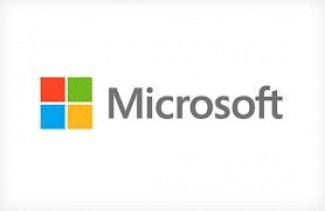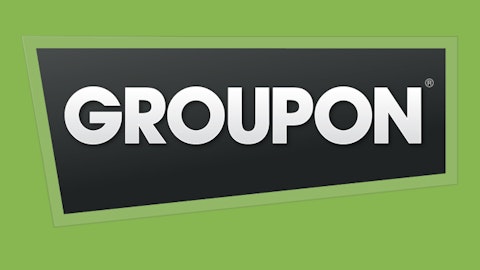Given the rally in Microsoft Corporation (NASDAQ:MSFT) shares on Friday, Steve Ballmer’s retirement was long overdue. With a new CEO in place, Microsoft Corporation (NASDAQ:MSFT) might finally be able to turn it around. Although it has been a steady dividend payer, Microsoft Corporation (NASDAQ:MSFT) shares have largely traded flat over the last decade, as rivals like Apple, Google Inc (NASDAQ:GOOG), and even Amazon.com, Inc. (NASDAQ:AMZN) have passed it by.
New management means hope for Microsoft. Unfortunately, whomever comes in is going to have their hands full. Nearly every part of Microsoft’s business is immensely challenged.

The Windows ecosystem is shrinking fast
Perhaps its biggest issue is Windows. Sales of traditional PCs (laptops and desktops) have declined as consumers have opted for mobile devices instead. Microsoft Corporation (NASDAQ:MSFT)’s foray into mobile — Windows 8 and Windows Phone — has mostly fallen flat.
In the first quarter, sales of traditional PCs fell nearly 14%, the largest decline on record. When Microsoft reported earnings in July, it admitted that demand for PCs was down about 20% among consumers. Meanwhile, Windows Phone is growing, but remains a marginal player with only a 3% market share.
And as Windows slowly dies, Google Inc (NASDAQ:GOOG) benefits. Research firm Gartner expects Android, Google’s mobile operating system, to largely supplant Windows by 2017.
Microsoft’s internet investment hasn’t paid off
Since 2009, Microsoft Corporation (NASDAQ:MSFT) has poured billions into its web services. Unfortunately, the company has little to show for it. Bing continues to remain far behind Google Inc (NASDAQ:GOOG) in search, while Google’s webmail and browser have grown their market share at Microsoft’s expense.
Since the first quarter of 2005, Microsoft’s online services division has cost the company over $11 billion. Bing is the single largest product in that division, and despite investing all those billions, Microsoft’s share of the search market has remained far behind Google Inc (NASDAQ:GOOG)’s — last month, it took about 18% of the market, compared to Google’s 67%.
Last year, Google’s Gmail overtook Microsoft’s Hotmail to become the world’s largest email service. And while Google’s Chrome browser continues to lag Microsoft’s Internet Explorer, Google is, with its Chromebooks, turing Chrome into a full-fledged operating system — Internet Explorer remains just a browser.
Office is starting to see legitimate competition
Office is perhaps the best positioned of Microsoft Corporation (NASDAQ:MSFT)’s businesses. For the most part, it remains a monopoly product — business users have little choice but to go with Office. Consequently, it’s been a veritable cash cow for Microsoft, and continues to rake in billions. Last quarter, Microsoft’s Business Division — of which Office is the dominant product — accounted for a third of its revenue, and the majority of its profit.
But unfortunately for Microsoft, competition is starting to emerge. Google Inc (NASDAQ:GOOG)’s Docs is an inferior product to Office, but has the advantage of being free. Microsoft clearly fears Google Docs to some extent, as it has financed an ad trashing Google’s product.
Last December, Google Inc (NASDAQ:GOOG)’s Enterprise Chief Amit Singh told AllThingsD his company hopes to steal 90% of Microsoft’s Office customers — those who do not require the most advanced features of Office.





